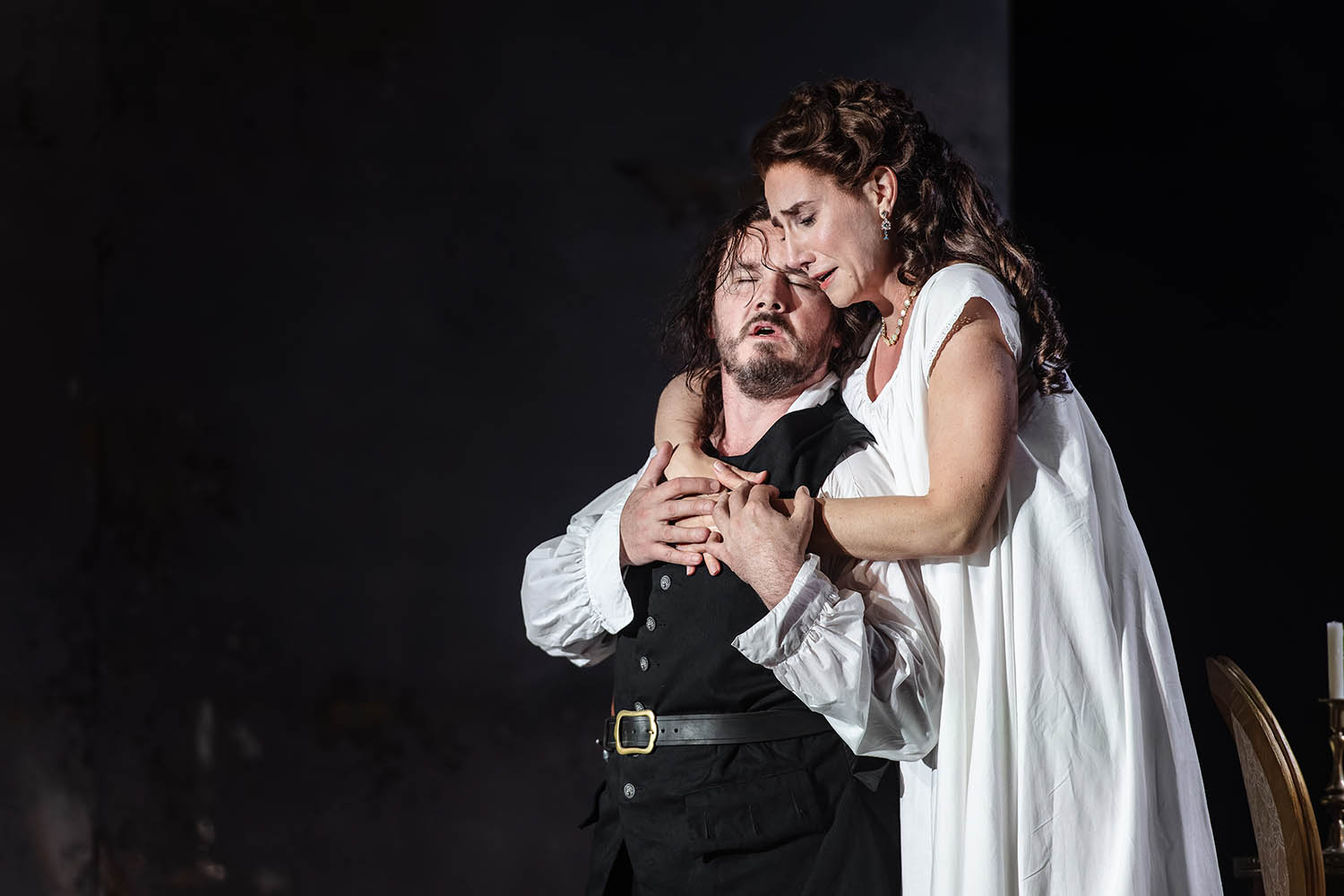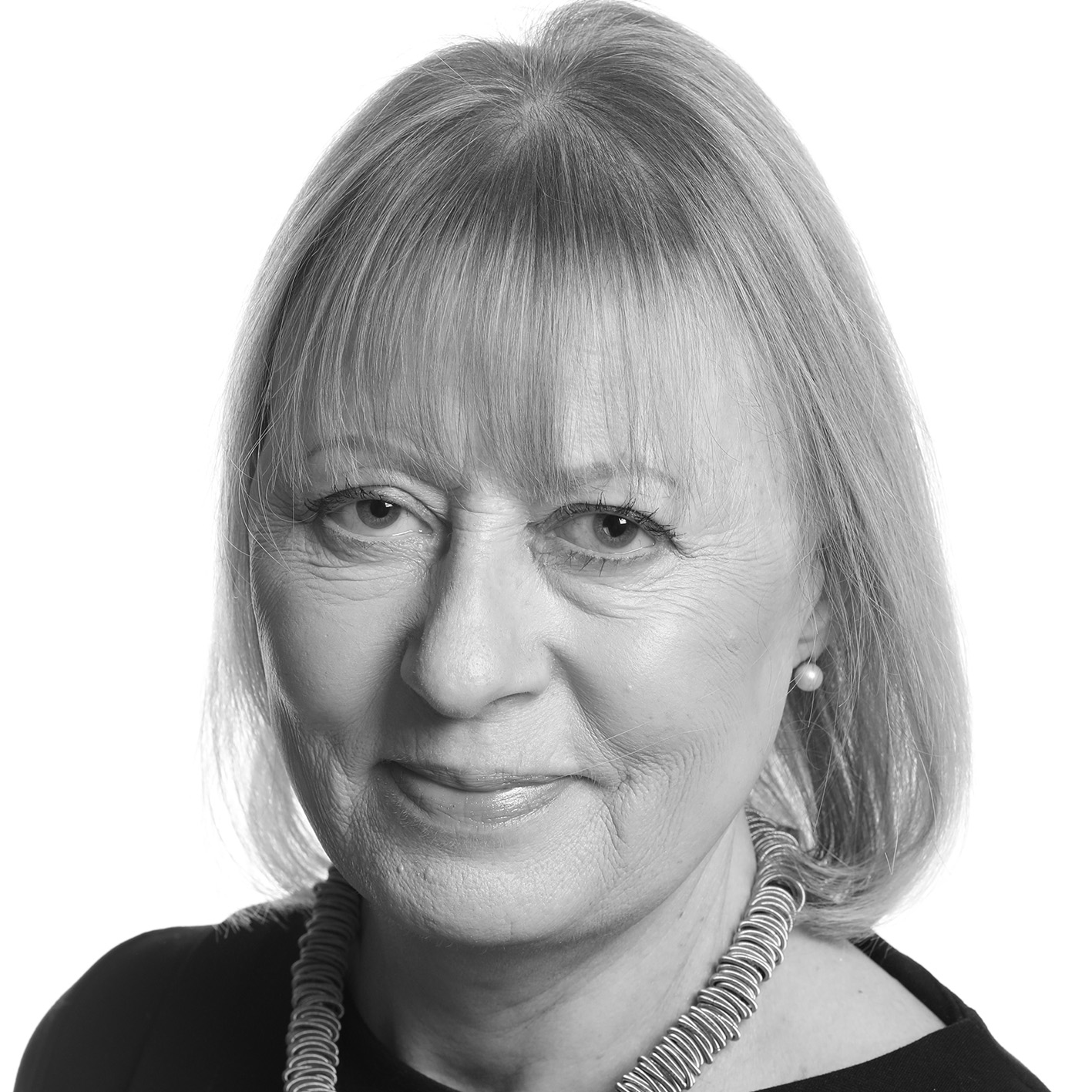Fast and frenetic, music swirling, the high-stakes card game at the end of Tchaikovsky’s The Queen of Spades (1890) whips up a mood of doom. Low brass blurts and squalls. Strings power through dark, tarry harmonies. Distant refrains of Orthodox chant hint at rebuke. Pushkin reportedly based his novella of the same name (183 3 4), Tchaikovsky’s starting point, on an anecdote as bizarre as the story itself. A Russian princess in the imperial court was said to possess a secret for winning at cards. In old age she revealed it to her impecunious grandnephew. From then on, she was seen as the prototype for Pushkin’s elderly Countess, from whom the antihero, Herman, fatefully extracts the three-card secret. Madness and a double suicide result.
Despite his literary hero status in Russia, Pushkin is now more familiar to non-Russian speakers as the source of a dozen or so operas, including three by Tchaikovsky: his much-loved masterpiece, Eugene Onegin, and the rarity Mazeppa, as well as The Queen of Spades. (All are being staged in the UK this summer.) Typically, using a libretto by his brother Modest, the composer flipped the Queen of Spades story on its head, bringing a desperate love affair – between young army officer Herman and the already betrothed Lisa – to the fore. Pushkin, cool to the point of irony, was more interested in Herman’s destructive longing for money. Garsington Opera’s new staging by Jack Furness, conducted by artistic director Douglas Boyd, with the Philharmonia Orchestra in the pit, presents the gambler’s descent into madness in all its many-layered strangeness, and achieves impressive musical standards.
Garsington’s pavilion-like theatre, made of timber, steel and sail fabric, set high above the Wormsley estate, is at once dramatic and challenging. The large, wide stage and clear side panels, looking on to rolling green vistas, must be made to draw the audience in from the start. The temptation to stare at the setting sun for the first half hour is not easy to resist. With each season, new solutions have been explored, including, as here, screening the daylight with black drapes, then pulling them back to establish the opening scene: the summer garden in St Petersburg, playground for aristocratic crowds of officers, governesses, nursemaids, children.
Tom Piper’s designs, with lavish costumes for all, including the large chorus and eight dancers, are predominantly 18th century. Giant gilt-framed mirrors are manoeuvred, back and front, occasionally too often, to move between costume ball, barracks, Countess’s bedroom, canal, and gambling room. Their misty, silvered reflections remain inscrutable: are we looking at ourselves? Yes, but spectrally, matching the opera’s supernatural enigma.
The main characteristic of the charmless Herman, aside from his obsessive nature, is his outsider status. Few singers can master this high-lying tenor (or heldentenor) role. Aaron Cawley, Irish-trained and based in Germany, risked all with his reedy, strident fortissimos. This air of tonal abandonment, even if at times unlovely, suits Herman’s unruly nature. As Lisa, the soprano Laura Wilde grew with the character, from unformed, needy lover to mature woman realising the truth about the man she loves. In a double dose of luxury casting, Diana Montague conveyed the haughty froideur, as well as the frailty, of the Countess. Roderick Williams, as a trim-ankled and elegant Prince Yeletsky, gets one of opera’s most tender, spurned-in-love arias. He delivered it with consummate style. Robert Hayward (Tomsky), Stephanie Wake-Edwards (Polina) and James Micklethwaite (Tchaplitsky) led the strong supporting ensemble. High praise, too, for the expert chorus.
So many contrasting musical elements coexist in The Queen of Spades, from pastoral intermezzo to pastiche parlour song, that it can risk losing focus until the action presses on to its climax. At Garsington, tension was maintained throughout. Boyd and the Philharmonia, on brilliant form, especially the hard-worked woodwind, showed how these disparate components are enmeshed in the very texture of Tchaikovsky’s score. Rhythms push and pull. Obsessive figurations make unyielding technical demands on players. Plainly, the composer was not a string player: the violas at the opening of the Countess’s bedroom scene have to repeat the same six-note pattern for nearly three minutes – more than 50 finger-numbing bars of ghostly, pulse-quickening menace. The effect last week was terrific.
To supplement his income, Tchaikovsky spent time as a music critic. He disliked Schumann and Brahms, and found Bach merely “interesting”. But he admired Schubert, especially in his B flat piano trio. That magnificent work ended last weekend’s Mile End Schubertiade, held at the canalside Ragged School Museum, founded by Dr Barnardo in 1877 for the local poor and now a museum. The pianist duo Pavel Kolesnikov and Samson Tsoy first held a festival there in 2019. This year’s fifth Ragged Music festival was the first devoted to a single composer. As well as playing together and as soloists, the pair invited the world-renowned pianist Elisabeth Leonskaja, Tbilisi-born, Austrian-based, to join them, together with two star string players, Russian-British violinist Alina Ibragimova and German cellist Marie-Elisabeth Hecker.
Kolesnikov and Tsoy, who also arranged seats in the airy Victorian schoolroom, turned pages and switched on lights, gave their guests the last word: these three played the B flat trio. Leonskaja, formidable and stylish as ever as she approaches 80, left the Soviet Union in 1978. Her playing retains some of the grand muscularity associated with the Russian piano school of the last century. Forging that heritage with her subsequent decades spent in Schubert’s home city, Vienna, led to exciting insights in this big-boned work. Ibragimova was blazing and mercurial, with keen attention to detail, while Hecker brought out the work’s intense, songlike lyricism. Their performance was a masterclass in playing chamber music with friends – a joy for them as it was for Schubert in his own short life.
The Queen of Spades Garsington Opera, Wormsley, Bucks; until 4 July
Ragged Music festival Ragged School Museum, London E3
Newsletters
Choose the newsletters you want to receive
View more
For information about how The Observer protects your data, read our Privacy Policy
Photograph by Julian Guidera

